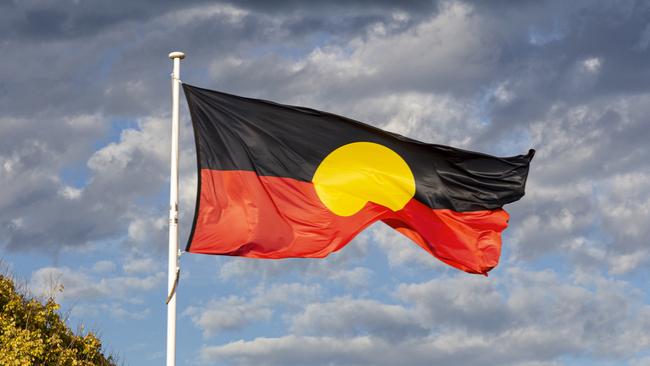Indigenous wages were stolen and they must be repaid

It didn’t matter what someone did in their lives or their title as long as they worked hard and provided for their families. Like most Australians, he aspired to own his own home. But he was paid only an “Aboriginal allowance”, not full wages. His union helped him secure equal pay, enabling my parents to buy their own home.
Because my father didn’t live on a mission or reserve, his wages (however meagre) were his own. For many Indigenous people who worked just as hard, their wages were not. From the late 1800s until the early 1970s, Indigenous Australians on missions and reserves lived under “protection” regimes under which their wages were paid to government accounts, controlled by bureaucrats and not spent for their benefit.
Australians who helped build this country had their wages taken; were denied a fair day’s pay for a fair day’s work. This is theft. It’s a dark part of Australia’s history. And a half-century since it ended, governments have failed to do anything about it.
Many people, especially conservatives, tell me they see my family as an exemplar of what all Indigenous people could be. I say to them: my family had their own land, owned their home and secured equal pay. Don’t talk to me about Indigenous self-reliance if you don’t think all Indigenous people should have those things; if you don’t think wages taken from Indigenous workers should be repaid. You wouldn’t stand for it if the government took all your wages or your parents’ wages. Nor should they.
For years Indigenous people have tried to recover stolen wages. But government compensation schemes have been woeful, offering well below what was taken. Frankly, I don’t know why they’re called compensation schemes. It isn’t compensation or reparations. It’s repayment of wages earned. Waiting for governments to do the right thing is pointless. Coalition and Labor governments alike do not.
So Indigenous people have no choice but to seek justice through the courts. A successful class action was brought in Queensland, and recently Aboriginal people in the Northern Territory filed a class action against the Australian government for lost income between 1933 and 1978.
These claimants can’t afford the legal costs of a claim. Their only avenue is litigation funders, which back legal claims people could never bring as individuals. In return for taking all the financial risk (including of having to pay the defendant’s costs) and investing millions in research and claim preparation, funders share in the award or settlement (if any).
But the Coalition government is planning regulatory changes to restrict or eliminate class actions.
These are supported by the big end of town, which doesn’t want the little people having the same access to the courts they have, particularly shareholder class actions against companies under disclosure rules. In fact, the proposed changes will have the least effect on shareholder class actions and disproportionately punish the most disadvantaged claimants, impeding their right to legal representation and crippling their access to justice.
One proposal is capping returns for litigation funders. Caps affect shareholder class actions the least because they are lower cost, with readily identifiable claimants, easier evidence gathering and narrow grounds for claims. Even with a cap, litigation funding still can be feasible for shareholder actions.
Not for stolen wages claims dating back decades, or for victims of faulty products such as the women injured by pelvic mesh implants who recently won damages only because of litigation funding. Caps in these cases likely mean no money for claimants or no claim at all because the litigation funder will suffer a loss. With a hand from government, defendants will be able to defeat claims by driving up costs through delays and hostile actions.
Most of the proposed changes carry problems such as this and/or create perverse incentives. And the one-size-fits-all model, where wage theft from Indigenous people and women left permanently injured from faulty medical products are put in the same bucket as share trading, is an appalling way to regulate access to justice.
The industry doesn’t shy away from sensible regulation, including to reduce wasteful tactics and incentives for bad behaviour. The industry wants to work with government to get the right outcomes. But the government is listening only to vested interests in the big end of town. It doesn’t pass the pub test for a government to change the law so as to reduce its own liability to repay Indigenous workers what’s theirs.
I won’t sit back and see decent Australians, robbed once by paternalistic governments, be robbed a second time by a government changing the rules. I won’t accept disadvantaged people being discarded like roadkill while the government appeases big corporations. Indigenous workers have a right to their day in court to recover what they earned. Don’t take that away from them.
Nyunggai Warren Mundine is a non-executive director of Litigation Lending Services Ltd and an advocate for Indigenous economic participation.



My father divided people into two categories. When I asked him what he thought of someone, he’d say: “He’s a worker”, meaning this bloke got up in the morning, went to work, fed his wife and kids, and all that; or “He’s not a worker”, meaning Dad didn’t think much of him at all.